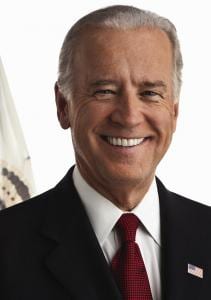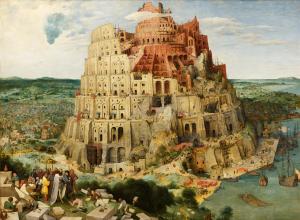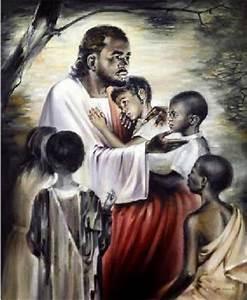 Back in the 1980’s the United Methodist Church, the denomination with which I am affiliated, decided to create a new hymnal. The one in use at that time was well over 25 years old, and much had changed in the world over those tumultuous 25 years. As most church groups do, and as the UMC most especially does, it formed a committee to examine the needs for a new songbook for the church. Along with the myriad decisions that needed to be made, someone—no one can quite remember who—determined that the new hymnal needed the biblical Psalms to be included. So, a committee on the Psalms was formed. Given the church’s increasing and quite public diversity in its membership, and its deep concern for creating more opportunities for a fuller representation of that diversity, persons form various groups were chosen to constitute the Psalms committee. There was an African-American, an Asian-American, a disabled person, a Pacific Islander, several women, among others who represented one group or another. One could easily call this tokenism of an overt kind, but this was nearly 40 years ago, and our church was waking up to our over-reliance on a majority of White people to do its work.
Back in the 1980’s the United Methodist Church, the denomination with which I am affiliated, decided to create a new hymnal. The one in use at that time was well over 25 years old, and much had changed in the world over those tumultuous 25 years. As most church groups do, and as the UMC most especially does, it formed a committee to examine the needs for a new songbook for the church. Along with the myriad decisions that needed to be made, someone—no one can quite remember who—determined that the new hymnal needed the biblical Psalms to be included. So, a committee on the Psalms was formed. Given the church’s increasing and quite public diversity in its membership, and its deep concern for creating more opportunities for a fuller representation of that diversity, persons form various groups were chosen to constitute the Psalms committee. There was an African-American, an Asian-American, a disabled person, a Pacific Islander, several women, among others who represented one group or another. One could easily call this tokenism of an overt kind, but this was nearly 40 years ago, and our church was waking up to our over-reliance on a majority of White people to do its work.
After this committee met for the first time, I received a call from the Hymnal’s editor, Sam Young, who was also the editor of the 1964 Methodist Hymnal. “John,” he began,” we have formed a committee to study the psalms for possible inclusion in the new hymnal, and we have assembled a very diverse group to do the work. Unfortunately, we lack one thing, and that is someone who can read Hebrew.” Well, there is a problem, I thought, since the Psalms were in fact originally written in Hebrew. So, I signed on, and after three years of wonderful work, and 22 meetings from around the country, and one in the UK, we added Psalms, though not all of them as we had hoped, to the 1989 UM Hymnal, which is still very much in use today. I treasure that work even now.
Diversity can be a huge gift, but can also be a great challenge. Joe Biden is finding that out as he continues to choose the people who will help him as he becomes the 46th president of the USA on Jan.20, 2021. His choices for his cabinet are wonderfully inclusive, including women, both Black and White, the first Native American, the first out gay man, among others. I am very heartened as Biden tries to fulfill his promise during his campaign to select leaders “who look like America.” He appears to be doing just that, and I am pleased: a Native American head of the Department of the Interior! I am so glad to have lived long enough to see such a possibility!
However, rumblings of discontent are already surfacing, and not only from Republicans who lost the presidential election; one would expect them to be uncomfortable with these overtly Democratic picks. Among the ranks of the more progressive Democrats, those who voted for Elizabeth Warren and Bernie Sanders in the primaries, are beginning to demand more representation in the inner circles for their issues: Medicare for all, free college for many more US Americans, more rapid rejection of fossil fuels for alternative energy sources, among many other concerns. They helped get Biden elected, and they want to be both heard and represented in the new administration. Diversity is a great gift, but it can also be a great challenge to implement.
Let us all be very clear about one fact: US America is the most astounding experiment in the world’s history. Our country is the most diverse on earth, and that rich diversity is held together in a republican form of government that seeks to find representation for all of its citizens. I lived in Dallas, TX for nearly 40 years. In those years I witnessed amazing changes in that city. When I left in 2017, a study found that there were in Dallas County more than 220 first languages spoken. I find that figure mind-blowing. I could not even name 220 different languages, let alone imagine that in some places on the Texas prairie, they would each one be spoken by one person or another. I have moved to Los Angeles, another wildly diverse place, now a “majority- minority” city, with about 40% of the citizens being Latino/a, and whites and African- Americans now the real minority, along with the Asian-Americans who are huge group here. I am thrilled to be living in US America now in this wonderful salad of diverse people. US America is decidedly not a “melting pot” where all individuals subvert their uniqueness for the sake of a supposed sameness and forced unity. We are a salad, or a pot of soup, where each one adds her/his uniqueness to the ultimate flavor and texture of the soup.
Of course, hardly all US Americans find this diversity their idea of wonder and joy. In every corner of our nation, there remain many who demand the speaking of English, and cry for a narrow kind of “Americanism” where all must conform to a rigid and required understanding of what some see as the only way to call oneself a citizen of this country. At times, this narrow demand takes ugly forms that insist white people should rule, that only certain political viewpoints are acceptable, only prescribed behaviors with regard to church and flag and civic activity are finally welcome in any given community. Our recent presidential election too often pitted these opposing ways of thinking against one another. Donald Trump’s defeat, I am very happy to say, was surely in significant measure the result of his narrow view of a “great America,” a view finally rejected by the majority of voters. However, the fact that he received millions of votes suggests clearly that many US Americans remain uncomfortable with the increasing diversity of their nation.
As usual, one may find a biblical analogy to inform this struggle between diversity and uniformity. The famous tale of the Tower of Babel in Gen.11 raises the issue sharply and unforgettably. As the story begins, a large group of travellers come to a plain in the land of Shinar (a place found only in story) and they settle there. Their customs and language are all the same, and as a result of that conformity they decide to build a gigantic tower “with its top in the sky,” avoiding their division and scattering, and defying thereby YHWH’s direct command “to be fruitful, multiply, and fill the land.” To the tower builders this massive construction is no less than a symbol of their greatness, a tribute to their unanimity; they literally think that its top is really in the sky, the location of YHWH. Unfortunately for them, they have only “mud brick and pitch” to build their tower, rather than the ubiquitous stone of Israel. One should not build any building of mud brick and pitch, let alone a huge skyscraper! Hence, when YHWH “comes down” to catch a glimpse of this supposedly skyscraping edifice (YHWH can hardly see the thing from YHWH’s abode!), YHWH decides that they must be stopped before the whole thing crashes around their ears. And so YHWH “confuses their language’ so that they can no longer understand one another. As a result, they stop their construction project, and finally “spread throughout the land,” YHWH’s desire for them in the first place.
The tale of the tower is not about YHWH’s fear of these people who desire to become like YHWH, but rather YHWH’s fear that their hare-brained and single-minded plots will lead to their doom; their pathetic megalomania will lead to their inevitable destruction. Diversity saves the tower builders from themselves. And this important diversity is reinforced in a famous New Testament tale from Acts 2. Peter, he who had denied Jesus in the Gospels, has now become the great lion of God and ambassador for Jesus. While he preaches his first sermon at Pentecost, something like “tongues of fire” descend on his hearers, and each one of them, though they have come from “every nation under heaven,” hear the news about Jesus “in their own languages.” This is not the miracle of “speaking in tongues,” some angelic speech that all share, but rather the miracle of hearing the good news in your own language. In short, it is a miracle of diversity, a diversity not swallowed up by a forced unity, but a diversity emphasized and reinforced by hearing in one’s own tongue. By definition, the early church began in radical diversity and continues so to this day, celebrating not a false unity but a fabulous diversity that enriches all who belong to the community.
Such diversity is a great gift, but for some it is less gift than curse. Yet, if the Bible be any guide for us in our 21st century, that gift far outweighs any challenge, and negates any thought of curse. Diversity is for celebration, not fear, not denial, not rejection. This Christmas may we celebrate our diversity, from shepherds to wise men to peasants to kings, from the young girl to the aged Anna. We Christians are all bound together in the child, but we are not ever to forget the complex diversity that we bring to that child.
(Images from Wikimedia Commons)












